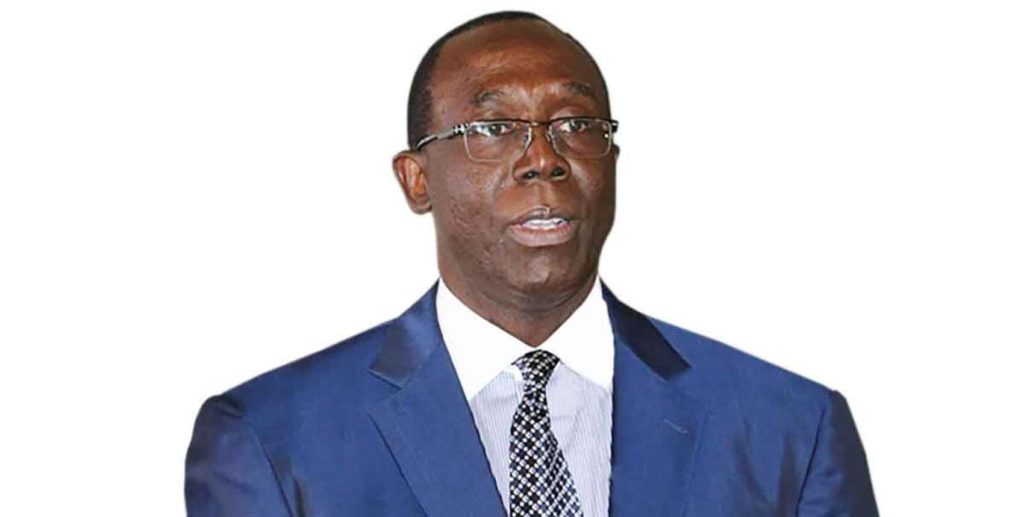After demonstrating its resilience during the Ebola outbreak and the global financial crisis, Africa is once again facing a severe test of its strength and agility because of the coronavirus pandemic. The good news is that the continent has entered this crisis in reasonably good shape following decades of progression in health, education and economic outcomes.
As of early 2020, macroeconomic fundamentals in Africa were improving, with investments, rather than consumption, accounting for more than half of the region’s growth. Inflation was falling and the continent was making impressive strides towards accomplishing the United Nations Sustainable Development Goals (SDGs). Africa must build on the momentum and strive to prevent the coronavirus pandemic from reversing the gains of the past 20 years.
Admittedly, that’s easier said than done: despite their best efforts, many countries still struggle with fragile health systems, high debt levels, weak external balances, as well as high rates of poverty and unemployment. The African Development Bank now projects that Africa will fall into a recession in 2020 with economic growth contracting by at least 1.7 per cent. In a worst-case-scenario, this figure could turn out as high as 3.4 per cent.
Cumulative losses in gross domestic product (GDP) across the continent could range between $173.1 billion and $236.7 billion in 2020 and 2021. The coronavirus pandemic threatens to increase the debt burden of African countries from 60 per cent to 70 per cent of gross domestic product, heightening the likelihood of a sovereign debt crisis. The additional financing required to cushion the consequences of the crisis could be in excess of $150 billion.
In a part of the world where 85 per cent of the population earn their living in the informal sector, unemployment as a direct result of the coronavirus pandemic could push an additional 28 to 49 million people into extreme poverty. Moreover, if we fail to take adequate action, the impact of the crisis on food insecurity and malnutrition may be even worse than anticipated.
What can be done to support African economies?
To counter the fallout of the coronavirus pandemic, Africa needs robust policy responses from every country on the continent, paired with strong support from Africa’s development partners. In the short term, African countries should prioritise healthcare spending for the provision of essential personal protective equipment (PPE) and materials, acceleration of local production of medical supplies including PPE and vaccine and drug discovery.
Targeted cash transfers and subsidies for vulnerable households as well as subsidies and tax relief for businesses should be high on the agenda. Central banks must inject liquidity into the economy, turning to unconventional policy tools such as quantitative easing if necessary. In the longer term, countries should seize the imperative of building resilience to future crises. As good times return and economies get back on track, it should become a priority to build domestic and external buffers against any potential exogenous shocks.
More money should be earmarked for scientific, economic and social research. Countries should pursue global and continental partnerships to prepare for eventualities. Private sector growth and revamping education and labour markets for the future of work are also key.
The role of development partners
At the onset of the coronavirus pandemic, multilateral development institutions took immediate action to help Africa’s poorest countries navigate the crisis and help them on the road to recovery. The African Development Bank is playing its part through its USD 10 billion COVID-19 Rapid Response Facility (CRF). The CRF offers immediate relief to African countries to address the crisis by providing additional resources for public health interventions, social protection programs and liquidity and budget support to affected sectors of their economies.
Civil society and think tanks have a useful role to play by helping to build trust, solidarity and uptake of COVID-19 prevention and containment measures. They can also help to ensure that COVID-19 interventions are carried out equitably and that governments are held accountable for their policies and actions.
The African Development Bank stands ready to work with other multilateral financial institutions and wealthier nations to alleviate the impact of the pandemic on African countries. For example, we welcome partnerships to establish dedicated donor-financed COVID-19 trust funds. We also urge G20 nations to consider debt forgiveness for low-income countries.
Reasons to remain optimistic
The continent’s youthful and innovative population, its growing middle class, its value addition to the abundant natural resources and its ever-improving governance systems give us plenty of reason to be confident that Africa will overcome the ravages of the coronavirus pandemic.
This year marks the first time the continent has entered a recession in more than half a century. Over the past two decades, Africa has boasted some of the highest growth rates in the world, setting the region up as the next investment frontier in a post–COVID-19 world.
The level of cooperation in Africa has been encouraging. But beyond the crisis, we need to continue working together to help rebuild our economies and prepare them for the future. Africa will emerge from this episode stronger and more resilient than ever before.
